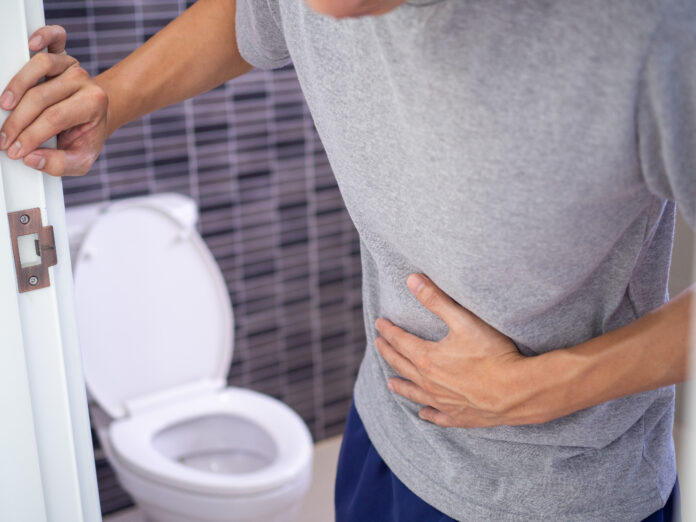
Your digestive system plays a crucial role in breaking down food for your body to absorb nutrients. Unfortunately, when things go wrong with your stomach, it can lead to a whole host of problems. At some point in your life, you might experience digestive issues that typically don’t get better on their own.
Perhaps you’re experiencing stomach discomfort, diarrhea, constipation, heartburn, or nausea, and you’re wondering when to seek medical attention. In this post, we will discuss the signs that someone might need to visit a stomach doctor.
Your Bowel Movements are Abnormal
If you’re experiencing a change in your bowel movements, that’s a clear sign it’s time to visit a stomach doctor. For instance, if you recently noticed that your poop is unusually hard or lumpy, or you have trouble passing it, you might have constipation.
On the other hand, if your stool is looser and occurs more frequently, you might have diarrhea. If you experience any of these symptoms, you should see a doctor.
It’s always a good idea to rule out common problems before visiting a stomach doctor. This can help point you in the right direction and allow your doctor to focus on more serious underlying issues. Start by adjusting your diet and lifestyle, such as adding more fiber or exercising regularly.
Additionally, consider taking over-the-counter medications, like antacids for acid reflux or probiotics for digestive issues. If your symptoms persist despite these measures, it might be time to visit a stomach doctor.
You’re Experiencing Heartburn Regularly
Heartburn is the burning feeling you get in your chest after eating certain foods. It’s often caused by acid reflux, which occurs when the stomach contents travel back up through the esophagus and irritate the lining of the throat. Common symptoms include a sour taste in your mouth, chest pain, difficulty swallowing, and a frequent urge to clear your throat.
Occasional heartburn is normal, but if you’re experiencing it frequently or after certain foods, it could indicate GERD (gastroesophageal reflux disease) or a more severe condition. A stomach doctor, or gastroenterologist, can help diagnose the root of your problem and get you on the road to recovery.
You’re Experiencing Unexplained Abdominal Pain
Abdominal pain can be sharp, dull, gnawing, crampy, or burning. The location of your discomfort can also vary, from the upper abdomen to the lower abdomen. If you’re experiencing chronic, severe, or localized abdominal pain, it’s time to see a doctor. A stomach doctor can perform tests to identify the cause of your pain and develop a treatment plan.
Abdominal pain that is brought on suddenly and is sharp or severe can be a sign of a serious health condition and should not be ignored. If the abdominal pain becomes unbearable, and is accompanied by other symptoms such as fever, vomiting, chills, bloody stools or urination issues then you should visit your stomach doctor immediately.
On the other hand, if the abdominal pain is mild and tolerable, then it is generally safe to wait a few days before seeking medical attention. In such cases, it is important to keep an eye on any changes in your symptoms or how you are feeling. If the pain persists for more than a few days or becomes worse over time, then you should seek immediate medical help.
You’re Dealing with Chronic Bloating
Bloating can occur for many reasons, but if excessive or chronic bloating is interfering with your daily life, get it checked. A stomach doctor can order tests to identify the underlying cause of bloating and develop an effective treatment plan to alleviate symptoms.
Before visiting a stomach doctor for chronic bloating, you can try to rule out other causes. Drinking lots of water and avoiding carbonated beverages can help reduce bloating. Making sure you get enough fiber in your diet is also key and eating smaller meals throughout the day can aid digestion.
Additionally, try to avoid high-fat or processed foods, as they can be difficult for your body to digest. Lastly, exercise regularly and pay attention to the foods that trigger your bloating so you can avoid them in the future.
You Have Unexplained Weight Loss
If you’re losing weight without trying, it could indicate a serious issue with your digestive system. Unexplained weight loss can occur due to the malabsorption of certain nutrients, which makes it difficult for your body to extract all the nutrients it needs from food. A stomach doctor can help you identify the reason for your weight loss and come up with a treatment strategy to address it.
Unexplained weight loss should be a cause for concern, as it could indicate an underlying medical condition or digestive issue. An unexplained drop in weight of more than five percent over a few weeks is especially concerning, and immediate steps should be taken to address the issue.
A stomach doctor can perform tests to identify any digestive issues or other causes of your weight loss and develop an effective treatment plan. Even if the weight loss is due to a dietary change or increased physical activity, it’s still important to be aware of any unusual changes in your body and seek medical advice if necessary.
Digestive issues can be uncomfortable, painful, and disruptive to everyday life. If you’re experiencing these or other symptoms, don’t hesitate to see a stomach doctor. A doctor can help diagnose the root of your problem and provide effective treatment to alleviate your symptoms. By taking action and getting medical help, you are taking a step forward towards better health and quality of life. Remember, the sooner you seek help, the easier it is to treat the problem.














